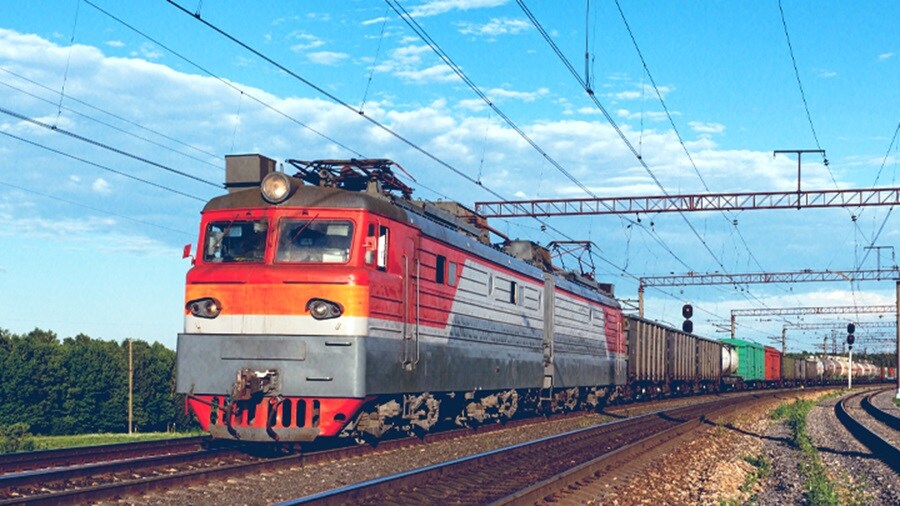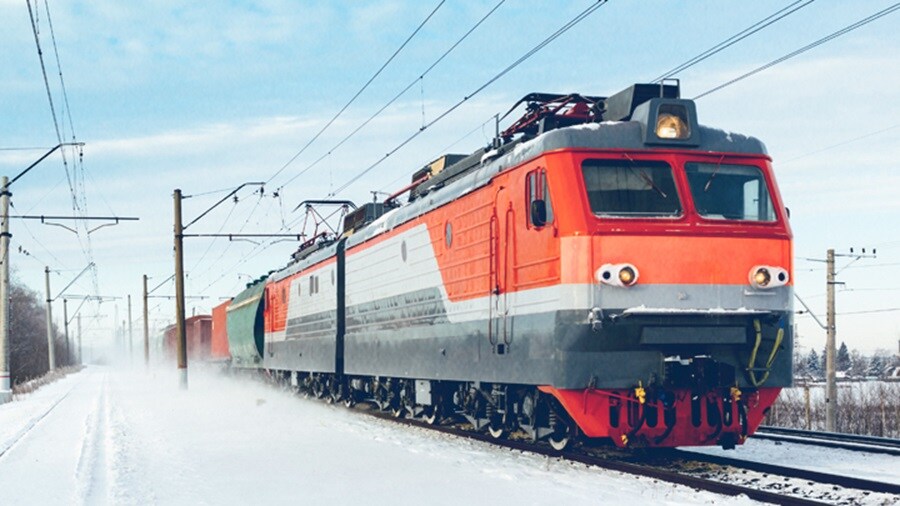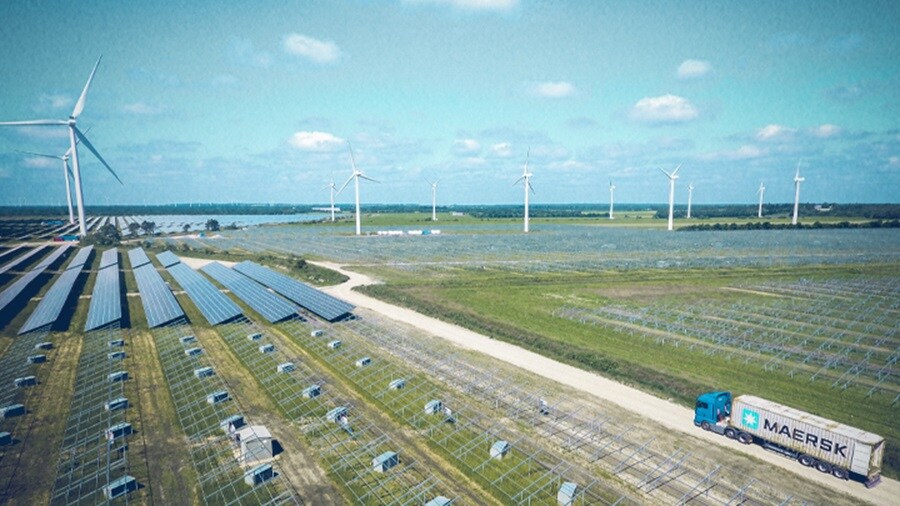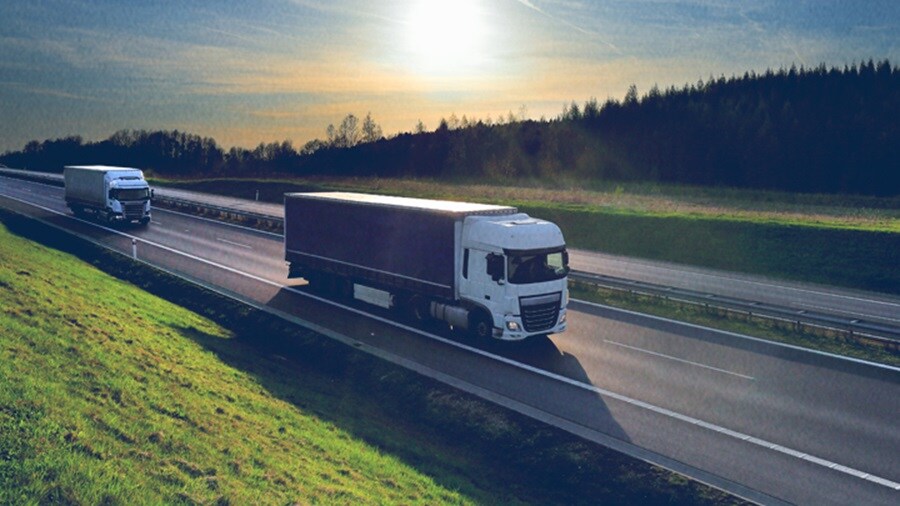As the world came together in the fight against climate change in 2021, A.P. Moller – Maersk continued to be at the forefront of change and fly the flag for sustainability across all operations. As the global integrator of container logistics, Maersk is both obligated and committed to fully decarbonising and preserving the planet for future generations – holding sustainability at the very heart of its core values.
The company intensified efforts across Logistics and Services over the past 12 months, collaborating with customers to find greener solutions for the inland road and rail operations that represent 5% of Maersk's greenhouse gas (GHG) emissions footprint. Becoming net zero in end-to-end logistics services requires close collaboration with customers to address their specific needs, which subsequently aids their individual pledges to reach net-zero.
Driving towards a green future also saw Maersk sign several agreements with responsible new partners who embrace the latest technology and integrate sustainability further into their business strategy.

On track to net zero
Hamburg-based ERS/BoxXpress.de was one such responsible partner to join forces with Maersk in 2021. The railway company operates emission-free electric container trains across Germany using renewable hydropower, saving over 10,500 tons of GHG from being released into the atmosphere, annually.
The start of 2022 will see Maersk’s block-train network in Germany increase capacity and become 100% carbon-free alongside ERS/BoxXpress.de, giving customers assurance that their supply chain is operating with as little impact on the environment as possible.
Flexible solution to connectivity problems
At Great Britain’s biggest and busiest container port, Felixstowe, Maersk expanded its rail footprint with GB Railfreight – reaching an agreement to operate a service to Newell & Wright in Tinsley across all working days of the week.
Not only did the service ease pressure brought about by Covid-19 and Brexit, but it also enhanced reliability and flexibility across customers’ supply chains for a critical route.
To ensure regularity didn’t come at the expense of sustainability, Maersk incorporated state-of-the-art eco-fret wagons from German company VTG Aktiengesellschaft on the service – maximising the number of 20- and 40-foot containers that can be carried.
It all adds up to a significant GHG saving of 0.24 tons per journey versus the equivalent road offering, while a 95% on-time rate enhances reliability.

Cutting kilometres and carbon emissions
Another new service launched in Europe in 2021 saw Maersk start to revolutionise the logistics landscape in Bulgaria. Cargo transport in the country had been dominated by road since the turn of the millennium, but a new intermodal weekly service connecting Burgas to major cities Plovdiv and Sofia is bridging rail gaps in customer supply chains while combatting GHG emissions.
The inclusion of rail saves 40km per journey alone for Burgas to the capital Sofia, plus catering to both import and export adds value to customers’ logistics operations while presenting the opportunity to grow in capacity when needed.
Collaboration with customers and innovative partners around the world is of paramount importance in Maersk’s decarbonisation mission. Understanding customer needs and providing innovative solutions enables all parties to build towards the common goal for net zero.
Consumers are also looking for greener solutions and adding further impetus for Maersk and its customers.
Our customers will not, over time, be able to satisfy consumers by telling them that a product was transported part of the way in a sustainable way. They need to be able to pledge that a product has been transported end-to-end with zero emissions. Building green corridors where we have eco-friendly offerings is therefore key, and these will then have to be scaled over time. In Europe, we have started the journey, and today already have our first zero-emission corridors.

Partnering for change
IKEA was one of many customers to work closely with Maersk to enhance sustainability in 2021 – identifying the need to connect inland across Spain while reducing carbon emissions and building a tailor-made solution together.
The furniture company’s goal of becoming climate positive by 2030 means reducing emissions of every transport it undertakes by more than 70%, which gave Maersk the opportunity to shift from truck to rail for IKEA’s Barcelona port to Tarragona terminal route.
The shift successfully reduced the IKEA footprint on this transport flow by 75% - forecast to cut GHG output on its long-haul transports in Spain by approximately 700 tons annually.

On the road to a cleaner future
As well as stepping up rail efforts to reduce carbon emissions, Maersk is maintaining its focus on road services and incorporating new technology to make trucking greener for its customers.
In Japan, Maersk has launched a pilot scheme offering customers sustainable truck transport through the use of renewable biodiesel fuel. Sourced from Itochu Corporation/Itochu Enex using ISCC-certified used cooking oil as feedstock, the biodiesel reduces carbon emissions by up to 80%.
In the US, Performance Team – A Maersk Company added 16 new Volvo VNR Electric Class 8 trucks to its transportation fleet to replace 16 diesels as part of the decarbonising logistics strategy.
Both forms of energy demonstrate not only Maersk’s commitment to reaching net zero across all operations, but also the volume of research and investment into innovations that could be rolled out across Europe and beyond in the coming years.
Giving drivers improved working conditions with the likes of state-of-the-art equipment, a quieter cab, and limited exposure to diesel fuel and exhaust will be exceedingly important in Europe, with the continent facing immense truck driver shortage challenges.
To begin combatting this, Maersk became part of the Responsible Trucking Collaborative Platform alongside 11 other leading companies in 2021 – looking to improve the social conditions of truck drivers across Europe.
Better working conditions and the implementation of social guidelines will strengthen Maersk’s Environment, Social & Governance (ESG) strategies and crucially provide customers with more supply chain transparency. The Responsible Trucking initiative will go a long way in promoting a level-playing field for customers, peers and suppliers. But it’s only the start of the battle for the industry in 2022.
Leading the way forward
In 2022, decarbonisation will remain central to all Maersk operations, with the global logistics integrator working closely with customers to reach sustainability goals as the need for change grows ever stronger. This collaboration, together with innovation, will be pivotal to driving Maersk and its customers towards carbon-neutrality, looking to make a real difference to the world.
Such is Maersk’s dedication to the planet and their customers, they recently announced a target to reach net zero by 2040 – a whole decade ahead of the original 2050 ambition.
Senior Sustainability Advisor Mads Stenson commented on how Maersk wants to be the driving force behind real change for the industry with its new targets.
More than half of Maersk’s top 200 customers have ambitious science-based or zero-carbon targets for their supply chain, and they are dependent on us helping them reach these targets. With our new climate-neutral commitments, we can help our customers on this journey as well as help drive the whole industry towards this goal.
This exciting year marks the beginning of the accelerated timeline for Maersk, proudly playing its part alongside customers in the global climate solution.
